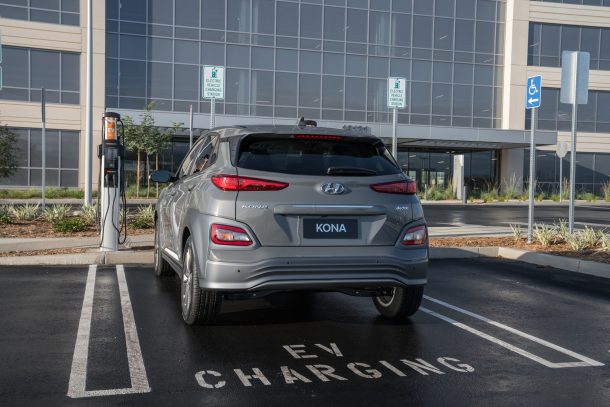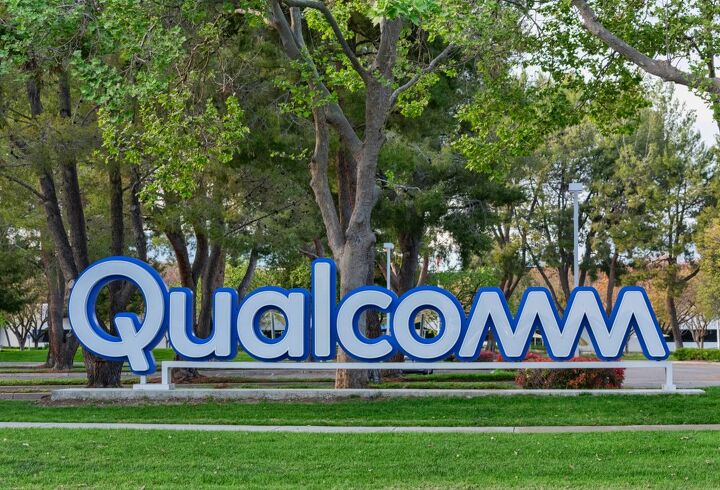#HotLegalAction
Nikola Embarrassed After Internal Review, Now Downsizing
The outside firm Nikola hired to conduct the internal investigation looking into the validity of claims made by ousted founder Trevor Milton has reached a conclusion. Milton does appear to have been fabricating the status of the company’s technology and how far along its prototypes were. But Nikola wasn’t helping and ended up being implicated in a few falsehoods of its own.
Some wealthy individual lying to a sea of people for the sake of making money is hardly news, however. The entire world runs on politicians and business people going back on promises made months earlier and clarifying statements that never seem to illuminate anything. What makes Milton’s offense so bad is that he seems to have used the power of lying to mislead investors who might have otherwise made money. Nikola shares never truly recovered from the exposé published by Hindenburg Research as part of its plan to short the company, and those who never bothered to question the legitimacy of its technical claims before investing are suddenly very interested in knowing everything about the business.
Ford CEO Asks Battery Suppliers to Stop Fighting
Battery suppliers LG Chem and SK Innovation have what could be politely described as an intense rivalry. With the automotive industry desperate to secure reliable access to the most essential components for the planned electric vehicle offensive, chemical companies specializing in electronics are very much in demand and they’re all jockeying for power.
On Wednesday, the U.S. International Trade Commission (ITC) sided with LG Chem after it had accused SK Innovation of misappropriating trade secrets pertaining to EV battery technologies. But Ford CEO Jim Farley is asking the South Korean businesses to call a ceasefire and settle things out of court, presumably through the transfer of a large sum of money.
California Wins the Gas War, Fickle Automotive Coalition Realigns Position
The Coalition for Sustainable Automotive Regulation (CSAR) is officially withdrawing from a lawsuit between California and federal authorities over the coastal state’s ability to establish its own emissions standards. California leadership had vowed to ignore the Trump administration’s proposed rollback and began making binding side deals with automakers (specifically BMW, Ford, Volkswagen, Volvo, and Honda) committed to adhering to the aggressive limits established under President Obama. Unfortunately, this ran the risk of undermining the revised national standards penned shortly after the United States became energy independent. It also set up the CSAR to embrace any entity that had views conflicting with California Air Resources Board.
Federal concerns were that the Golden State setting its own targets would butt heads with the relaxed national benchmarks and ultimately divide the U.S. market and may even influence the types of vehicles that were manufactured for all of North America. But the issue became moot once President Biden broke the record for executive orders by signing 22 in his first week. Predictably, the brunt of these were designed to instantly undo any actions taken throughout the duration of the Trump administration and included one directing the Department of Transportation and EPA to reconsider the 2019 decision to remove California’s authority to limit tailpipe emissions by April and revise the fuel-efficiency standards for automobiles by summer.
Automotive Alliance Manages to Delay Revised Massachusetts Right to Repair Law
The Alliance for Automotive Innovation (AAI) has managed to stall enforcement of a ballot measure recently passed in Massachusetts that expands access to data related to vehicle maintenance and repair. Last week, the relatively new lobbying/trade group asked a U.S. district court for a temporary order that would bar implementation of the state’s new right-to-repair rules aimed at giving vehicle owners more direct control of their private data and independent repair shops a fighting chance of staying in business. But the state’s attorney general has already decided that the rules are invalid until after federal cases have been decided.
The decision represents another victory for giant, multinational corporations at the expense of disgusting citizens interested in controlling their personal information and small business owners who have had it easy for far too long.
Pennsylvania Dealer Group Accused of PPP Fraud, Extorting Cash From Staff
When the United States announced it would be offering payroll relief to the countless small businesses it impacted with government shutdowns intended to combat COVID-19 earlier this year, everyone breathed a sigh of relief into their mask. Unfortunately, the Paycheck Protection Program (PPP) became a confusing bureaucratic mess almost instantly. It wasn’t clear how companies would account for part-time or contracted employees, numerous banks denied help to those with less than stellar financial histories, and the application website repeatedly crashed — which was awful for a service that was designed to accommodate candidates on a first-come-first-serve basis.
There were also numerous provisions that allowed big business to take advantage if their individual locations were small enough and loopholes for companies that weren’t even required to shut down operations. Criticisms understandably began to surface, followed by months of commercials asking concerned citizens to report instances of fraud. One such example came into focus this week after a former sales representative for a Pennsylvania-based dealership group launched a federal lawsuit against their ex-employer alleging that it had violated the False Claims Act in relation to PPP.
UN Panel Decides Japan Violated Carlos Ghosn's Human Rights
The United Nation Human Rights Council’s Working Group on Arbitrary Detention issued a report on Monday stating that Carlos Ghosn’s extended detention in Japan was an unacceptable infringement on his rights — adding that the matter would be forwarded to the UN’s rapporteur on torture, cruel and other inhuman or degrading treatment.
While there are undoubtedly larger examples of human rights abuses inside the automotive industry — Volkswagen’s apparent reliance on Chinese slave labor springs to mind — Japan’s bizarre treatment of the former head of the Renault-Nissan alliance garnered plenty of attention. Accused of financial crimes relating to the Japanese automaker he formally chaired and was once praised for saving, Ghosn was subjected to repeated arrests and strict limitations on who he was allowed to contact. Despite his having fled the country in a form befitting of a secret agent, the UN is still claiming his treatment ahead of the repeatedly delayed trial was tantamount to abuse.
Hyundai Being Sued Over Kona Electric Fires, LG Chem on Deck
Hyundai Motor Co. is being sued over a series of battery fires in its electric vehicles in Asia — specifically in relation to the otherwise-enjoyable Kona EV. Though it hardly seems fair to single out Hyundai when General Motors recently issued a recall encompassing 68,677 electric vehicles with batteries manufactured by LG Chem. Interestingly, Hyundai’s 74,000-strong Kona recall (which includes 11,082 units sold to the United States and Canada) uses the same supplier.
EV fires have become a hot topic within the industry, specifically because it runs the risk of slowing adoption rates and makes the affected automaker look wildly inept. Lawsuits don’t help the matter but Hyundai’s more immediate concerns involve proving that LG is the one that screwed up. While it hasn’t pointed any fingers directly at the supplier, it has dropped subtle hints while LG Chem insists its products are not defective. The duo is reportedly collaborating on an internal investigation into the troubled vehicles — 16 of which have burst into flames in North America, Europe, and Asia.
Massachusetts Passes Right-To-Repair Protections
Independent repair shops and aftermarket parts retailers have been pitted against major automakers and their dealer networks in Massachusetts for years. The state has served as the primary battleground for right-to-repair legislation that would permit/prohibit customers and independent entities from working on or modifying vehicles. However, a major victory came on Tuesday after voters overwhelmingly approved a ballot measure updating existing right-to-repair laws to give vehicle owners and small shops better access to vehicle data typically reserved for industry giants.
The resulting decision gives consumers substantially more control over what’s done with the data being harvested by the industry (often without their knowledge) and frees up their options on who to go to when their vehicle needs fixing.
Uber Drivers Sue, Claim Company Pressured Them to Support Prop 22
A small group of drivers are suing Uber over repetitive in-app messages from the company about Proposition 22, a ballot initiative it would very much like them to support. Considering the deluge of political messages you’re undoubtedly getting on your own cellular device, you’re probably sympathetic to their plight. There are few things more annoying than being constantly reminded about an election nobody seems capable of shutting up about — especially when they can’t seem to get your name right.
But Uber likely crossed a line with its employees. While political action campaigns can inundate you with the most obnoxious and misleading election information, your employer isn’t supposed to. These drivers are claiming Uber violated their employment rights by trying to get them to support a ballot measure it has a vested interest in every time they checked their mobile device to hunt for a fare.
California Rules Uber/Lyft Must Reclassify Drivers
A California appeals court unanimously ruled against ride-hailing giants Uber and Lyft on Thursday, mandating that they would indeed need to reclassify drivers operating within the state as employees.
The duo have been pushing against Assembly Bill 5, which seeks to reclassify contracted, gig-economy workers as fully fledged employees entitled to all the associated benefits, all year. California even sued Uber and Lyft in May for refusing to comply with with the order but they’ve claimed AB5 will severely hinder (if not eliminate) their ability to operate within the state and have backed a measure called Proposition 22 that would grant them special exceptions.
Uber, Lyft Spending Big to Fight Californian Gig Economy Laws
GM Files State Lawsuits Against FCA Over Racketeering Claims
General Motors refuses to let the dismissal of its federal racketeering case against Fiat Chrysler Automobiles stand in the way of getting what it believes is true justice. On Monday, the automaker filed its latest claim with Wayne County Circuit Court in Michigan. These are separate from the New Jersey lawsuit it has targeting former board member and ex-UAW vice president Joe Ashton, who GM has accused of being a hired mole. However, Ashton was named in the trio of new court filings, along with Alphons Iacobelli — the man who pled guilty to embezzling union funds and kicked off a gigantic federal corruption investigation into the UAW.
The automaker also named some of the banks it claimed were involved in the union scandal and continues to allege that FCA “provided millions of dollars to co-conspirators via numerous undisclosed offshore bank accounts and utilized such accounts to purchase the support and silence of numerous high-level UAW officers and FCA executives.” Fiat Chrysler’s assumed goal? Forcing General Motors into a merger or destroy it if the merger failed by negotiating favorable terms with the union and encouraging leadership into adopting positions that would harm GM.
Former Nissan Executive Pleads Not Guilty, Defends Ghosn
Greg Kelly, the American businessman and former Nissan board member that was arrested with ex-chairman Carlos Ghosn almost two years ago, has pleaded not guilty to the financial misconduct charges leveled against him in Japan. While he was supposed to stand trial with Mr. Ghosn, Carlos escaped his captors with the help of at least one U.S. Army Special Forces veteran and a lot of careful planning at the end of 2019. Kelly is accused of helping the former chairman hide millions of dollars in deferred compensation.
During the trial, he defended Ghosn by saying he was an outstanding automotive executive who helped save Nissan in its darkest hour. He also hinted that the firm should have done everything in its power to retain him, adding that his role was to find legal ways of keeping Ghosn from jumping ship to a rival company. While that included financial incentives, Kelly asserted during the trial that Nissan’s attorneys were always consulted before decisions were made and that no illegal actions were taken. “I informed Mr. Ghosn what could be done legally and what could not be done legally,” he told the court. “I believe the evidence will show that I did not violate the [financial] disclosure regulations.”
Honda on Hook for $84.2 Million to Settle State-level Airbag Probe
Honda Motor Co. has agreed to pay $84.2 million to settle an investigation conducted by American states regarding its use of the famously defective Takata airbags — units linked to numerous deaths and hundreds of injuries.
Honda recalled about 12.9 million vehicles (some of them Acura models) equipped with inflation devices that ran the risk of accumulating moisture to the point where the propellant inside could destabilize, leading to an overly forceful explosion during an impact. Upon rupturing, these units could effectively spray shrapnel into the cabin area.
While Honda’s first major recalls were enacted in 2008, by 2013 millions of vehicles were in the process of being retracted by rival manufacturers that also used Takata as a supplier. And it just kept getting bigger until it was the largest recall in history, with Honda receiving the most ire due to the high number of fatalities suffered within its vehicles — and for having prior knowledge of the defects.
Cash in Your Chips: Automakers Ask FTC to Seek Appeal After Losing Qualcomm Case
Frequently on the cutting edges of technology, the automotive industry has been slamming chips into vehicles to facilitate communications ever since General Motors launched OnStar back in 1996. This evolved into cars boasting reliable navigation systems and remote vehicle diagnostics until they literally started becoming mobile internet hot spots.
Now the industry wants to further ingrain connectivity by equipping all vehicles with 5G — opening the road for new features and the ability to harvest your personal data more effectively.
This has required deals with tech chip manufacturers like Qualcomm, which requires companies to sign a patent license agreement before actually selling any of its hardware or software. But regulators around the globe worried the practice may be monopolistic, violating antitrust laws. The Federal Trade Commission (FTC) brought a case against the business in 2017. Despite winning that case in 2019, a U.S. appeals court overturned the decision earlier this month, deciding Qualcomm could continue conducting business as usual. Now, tech companies (mainly Qualcomm rivals) and a gaggle of automakers are urging the FTC to seek an appeal following the loss.

























Recent Comments